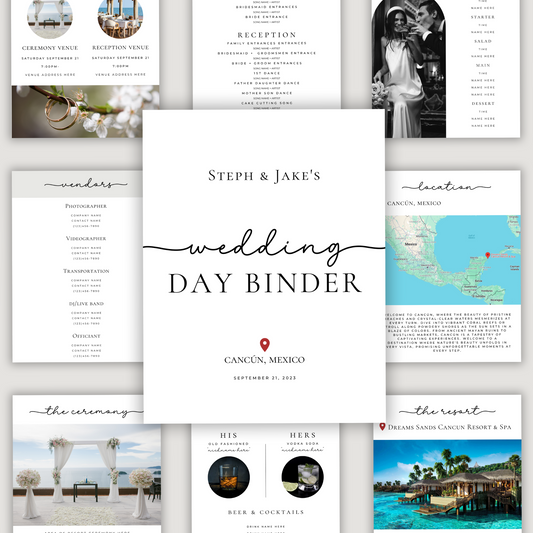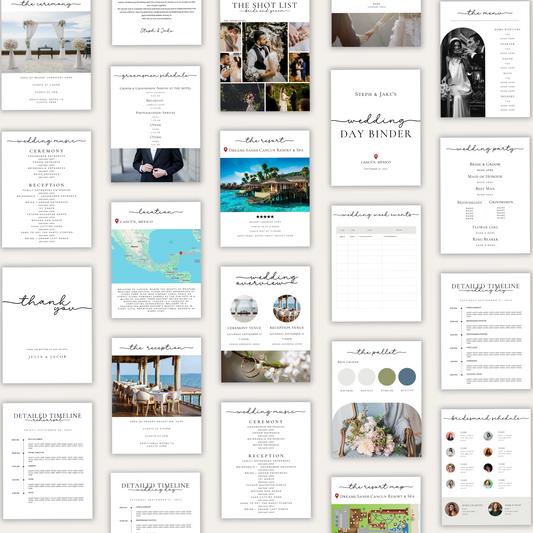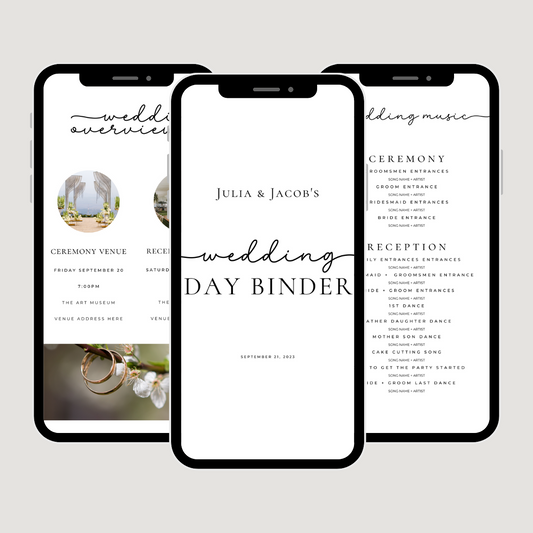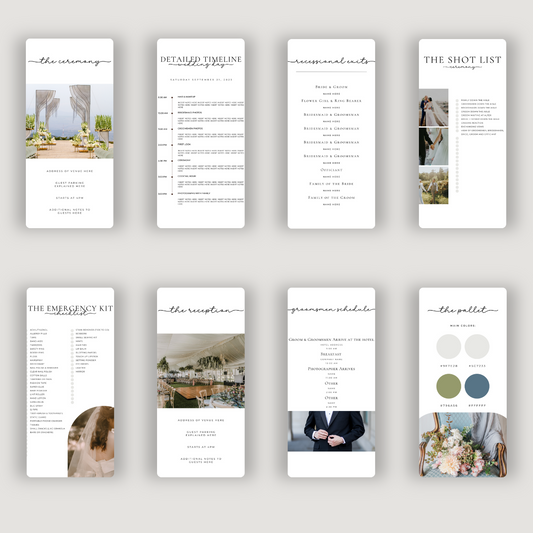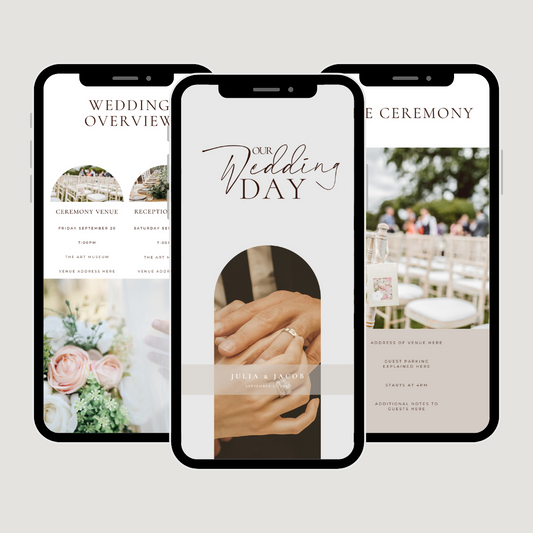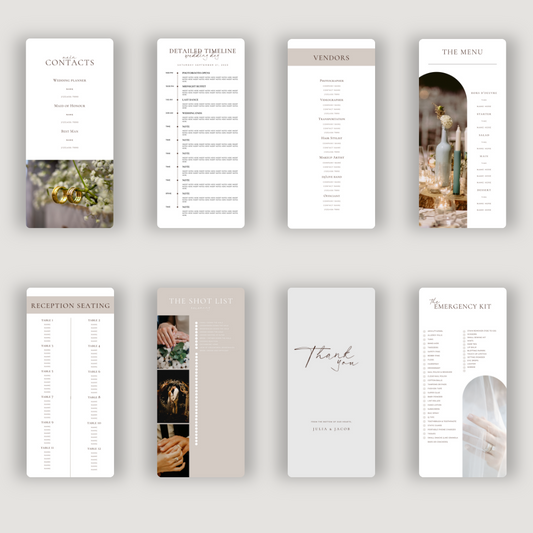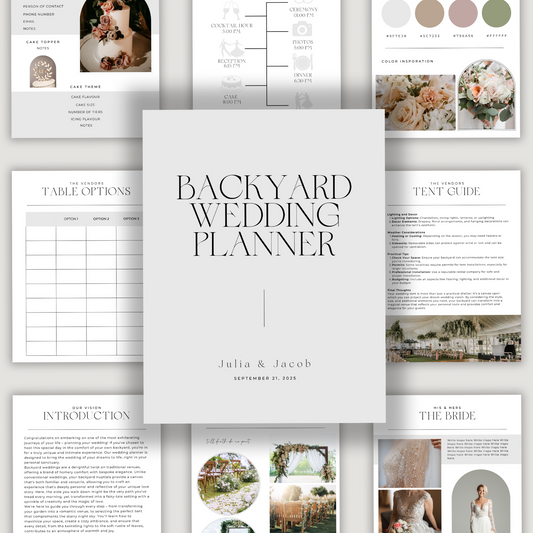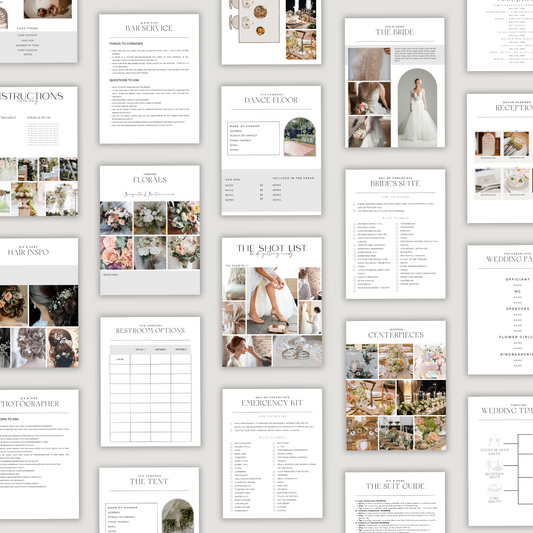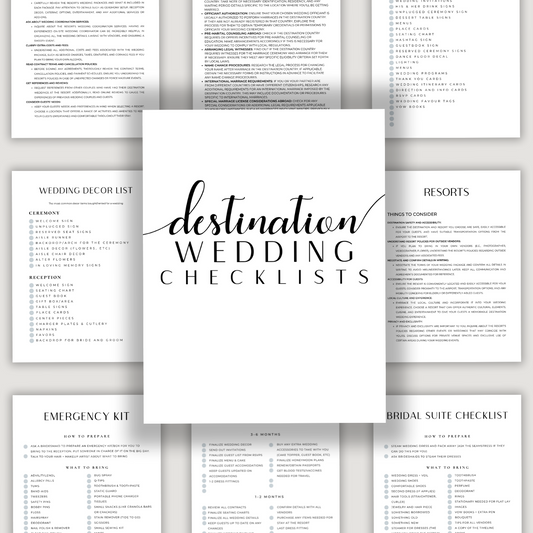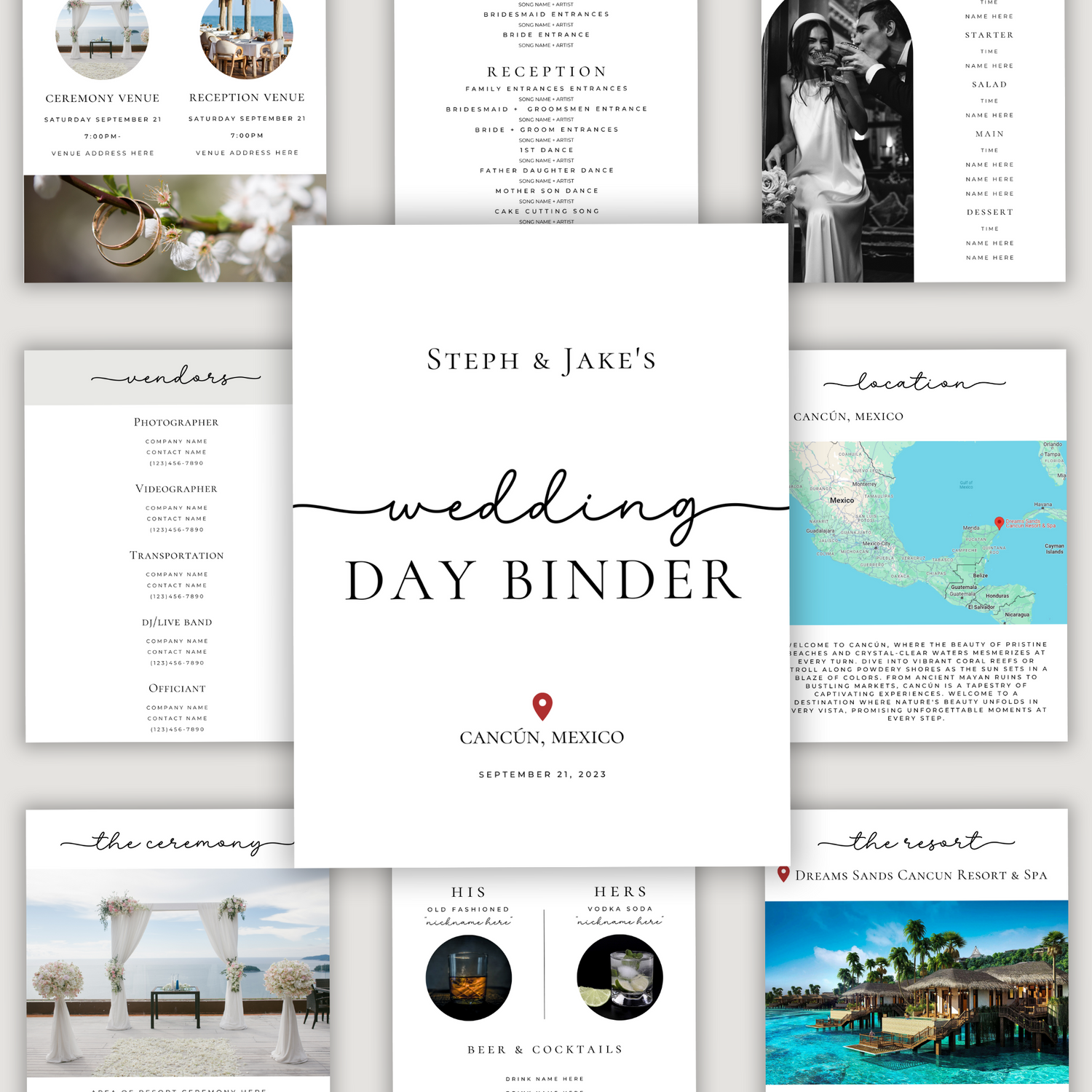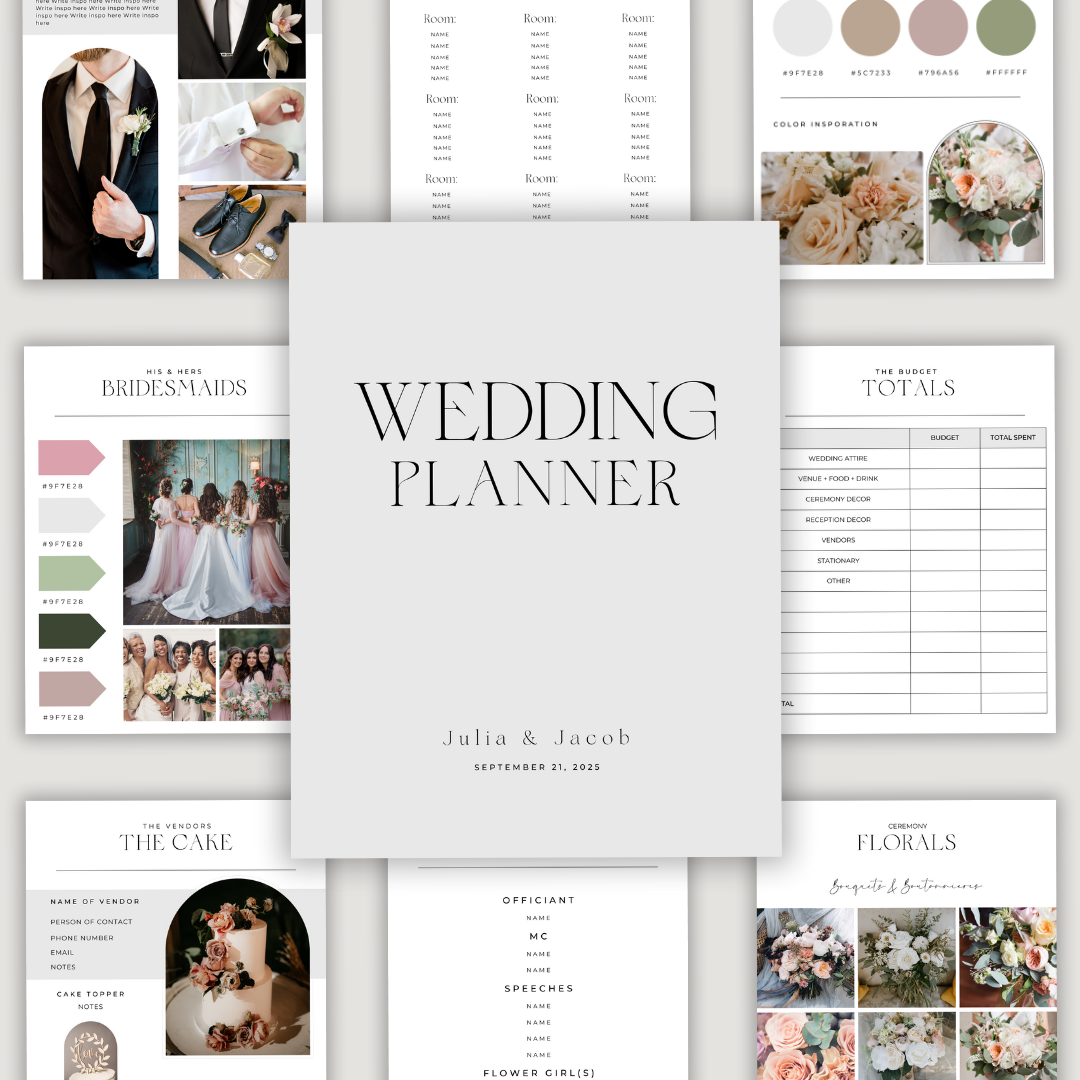Do People Pay Their Own Way for a Destination Wedding?
Share
If you're planning a destination wedding, one of the most common questions you'll face is whether your guests should pay their own way. It’s a tricky topic because, on one hand, a destination wedding can be a dream come true, but on the other, it’s a big ask for guests who may need to travel long distances and incur significant expenses. Let’s break down the typical expectations and some strategies to help navigate this sensitive topic.
What’s the Norm for Destination Weddings?
1. Guests Typically Pay Their Own Way
The general expectation for destination weddings is that guests will cover their own travel and accommodation costs. This includes flights, hotel stays, and any other travel-related expenses. The reasoning behind this is that attending a destination wedding is a significant commitment, both in terms of time and money, and it’s understood that not everyone will be able to attend.
- Travel Costs: Guests usually book their own flights and transportation to the wedding destination. If you can, providing a list of nearby airports and transportation options on your wedding website can be really helpful.
- Accommodations: While many couples arrange a block of rooms at a discounted rate for their guests, it’s still expected that guests will pay for their own accommodations.
2. Communicating Expectations
It’s essential to be clear about expectations from the get-go. Make sure to communicate upfront, whether through your wedding website, invitations, or a personal message, that guests will need to pay for their own travel and accommodations. This allows guests to plan accordingly and decide if they can attend.
- Wedding Website: A wedding website is a great way to share detailed information about travel, accommodations, and any group discounts you’ve arranged.
- Save-the-Dates: Including a note about the destination and a link to your wedding website on your save-the-dates can give guests plenty of time to budget and make arrangements.
3. How to Make It Easier for Your Guests
While it’s typical for guests to pay their own way, there are ways you can help make the trip more affordable and stress-free for them:
- Group Discounts: Work with airlines and hotels to secure group discounts. Many resorts and hotels offer special rates for wedding parties, which can significantly reduce costs for your guests.
- All-Inclusive Resorts: Consider choosing an all-inclusive resort for your wedding venue. This can simplify things for your guests since they’ll know upfront what their costs will be, and it might even include meals and activities.
- Room Blocks: Reserve a block of rooms at a discounted rate and encourage guests to book early to take advantage of the savings.
What About Covering Costs for Certain Guests?
1. Immediate Family and VIPs
Some couples choose to cover the costs for certain key people, such as parents, siblings, or the wedding party. If your budget allows, this can be a generous way to thank those who are closest to you for their support and presence on your big day.
- Wedding Party: It’s common to offer some financial help to your wedding party, especially if you’re asking them to travel far. This might include covering their accommodations or contributing to their travel expenses.
- Close Family: If you want to ensure that certain family members can attend but know the costs might be prohibitive for them, offering to cover their expenses can be a great gesture.
2. Gifts or Contributions Instead of Traditional Favors
Instead of traditional wedding favors, some couples choose to put that money toward helping guests with travel costs. This could be a contribution toward their airfare or covering a night or two of their hotel stay. It’s a thoughtful way to show appreciation for their effort to attend your destination wedding.
Tools to Help Manage Costs and Expectations
Planning a destination wedding involves a lot of logistics, and staying organized is key to making sure everything goes smoothly—both for you and your guests.
Destination Wedding Planner
The Destination Wedding Planner from My Digital Darling is designed to help you manage every detail, including your budget and guest communication.
- Budget Tracker: Keep track of all your wedding-related expenses, including any contributions you might be making toward guest travel or accommodations.
- Guest List Management: Organize your guest list, track RSVPs, and make notes of any special arrangements you’re making for certain guests.
- Travel and Accommodation Coordination: Plan and coordinate group discounts, room blocks, and other travel-related details with ease.
Destination Wedding Day Binder
The Destination Wedding Day Binder is perfect for ensuring everything runs smoothly on the big day:
- Day-of Timeline: Keep track of the entire day’s events, so you know when and where everything is happening.
- Vendor and Contact Lists: Have all your vendor contacts and important information in one place for quick access if anything comes up.
- Setup Instructions: Ensure that your vision for the day is executed perfectly with detailed setup instructions.
Destination Wedding Checklist Bundle
For those who want to cover every base, the Destination Wedding Checklist Bundle is a must-have:
- Detailed Checklists: Keep track of everything from booking travel to legal requirements, ensuring nothing is overlooked.
- Tips and Resources: Get advice on everything from communicating with guests to managing the logistics of a destination wedding.
Final Thoughts
So, do people pay their own way for a destination wedding? In most cases, yes, they do. While it’s a lot to ask, clear communication and a little help with arrangements can make it easier for your guests to attend. Remember, a destination wedding is a significant commitment for everyone involved, so being upfront about costs and offering any support you can will go a long way in making sure your loved ones can join you for your special day.
With the right tools and planning, you can create a destination wedding that’s not only beautiful and memorable but also manageable for you and your guests. Whether you’re covering some of the costs for certain guests or simply making sure everyone has the information they need, the key is to stay organized and communicate clearly. Happy planning!



